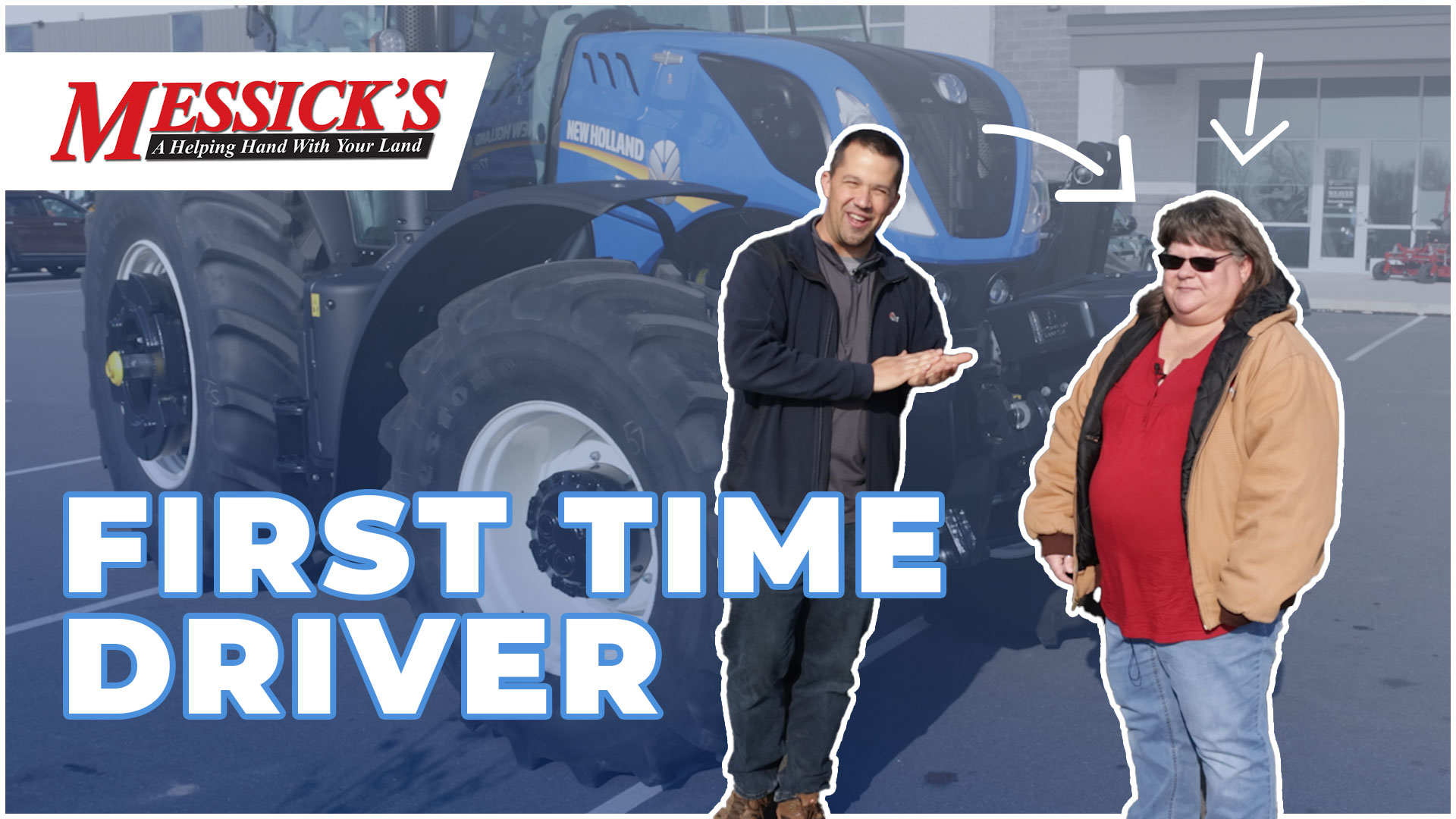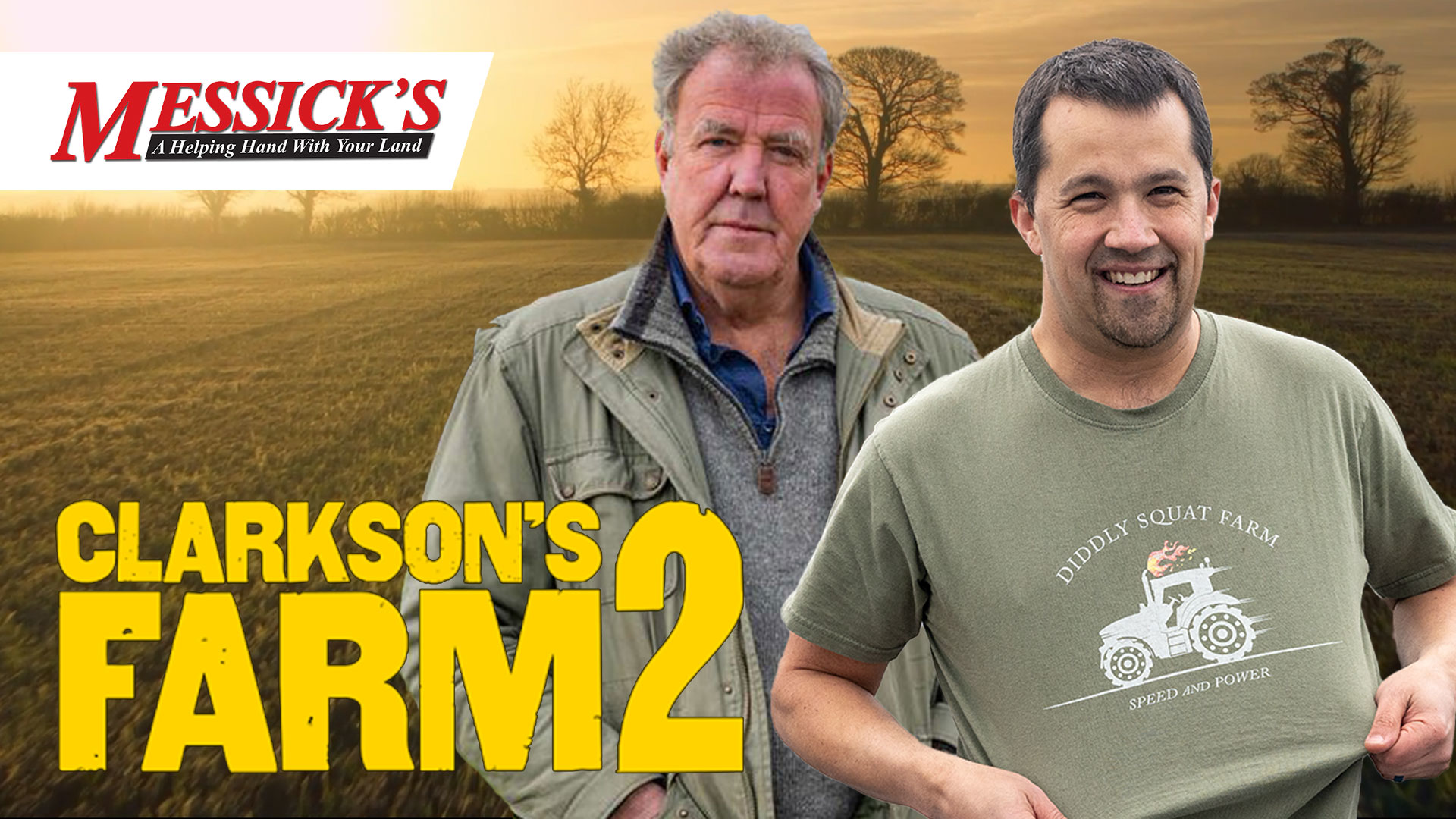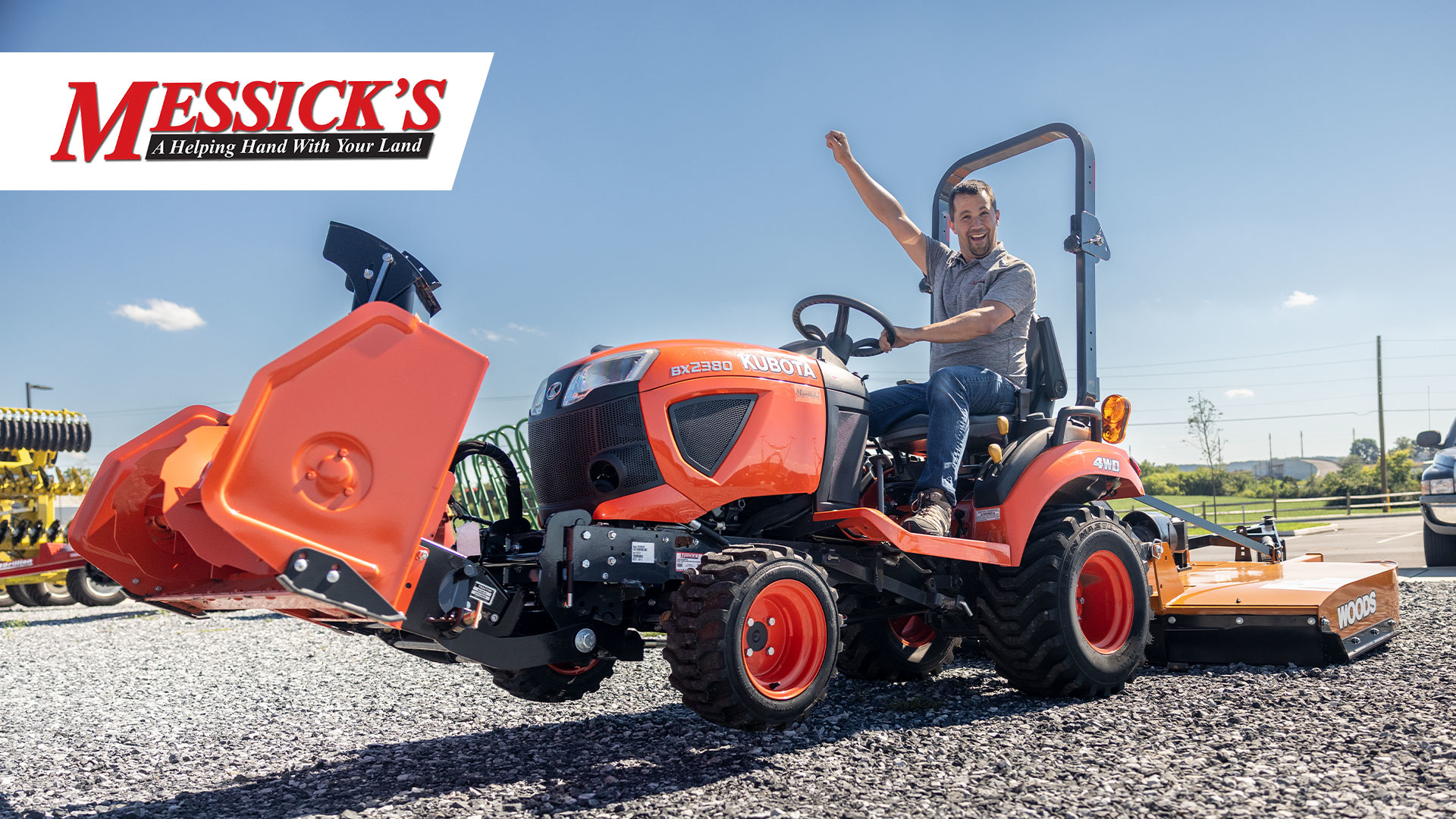5 Reasons Your Tractor Can't Climb a Hill
Tags : educational |Neil from Messick's here to talk to you today about why so many of these tractors seemingly can't drive uphills. It's a really common complaint and frustration that we hear from our customers, so today, we're going to talk about it.
The first reason why tractors often don't pull hills that well is that it's just simply not what they're made to do. When you think about this machinery, you're dealing with something that's often very heavy, doesn't have huge excessive amounts of horsepower, and really is set up in a way that it's meant to be geared at low and driven at low speeds. To do ground-engaging work or push into a pile of dirt with your loader, you're going to have that transmission in that machine set up to operate best at low speeds. When we hear people say things like, "My tractor can't climb a hill," what that usually means is that this tractor doesn't climb a hill as quickly as I want it to.
If you drop that machine down in a low gear, and shift it down through those RPMs up, this equipment will climb just about any hill you want to go up, but it may not do it as quickly as you want it to because that's just not its intended use.
Reason number two why your machine may not climb a hill real well is because it's got a hydrostatic transmission. Hydrostatic transmissions are made up of two major components, a pump and a motor. You've got a pump that's pumping fluid through a hydraulic motor that goes out and turns your wheels. Now, what varies the speed of that hydraulic motor is a part called a swash plate. The harder you press down on the hydrostatic pedal, the greater angle that swash plate is running at, and effectively, the higher gear that it's in. When you're going to pull that hill, when you're trying to travel along and you're pushing that pedal to the floor because you want the machine to go faster, you're effectively shifting into a higher and higher gear as you go, making it more difficult for the tractor to pull the hill.
The third reason why your tractor may not pull a hill is because your oil is cold, or you've got the wrong oil in your tractor. Equipment by nature can be cold-blooded, especially on a day out here today where I can see my breath out here. You've got this large piece of iron that holds temperature. It holds that cold that's outside. Those oils are thick, and if they're being pumped around the inside of your tractor to make that machine move, they don't have the same amount of torque and power when things aren't flowing properly. You'll often hear your machine whining, often times that's that fluid not pumping well or hitting some pressure relief and blowing off and not being able to put the power of the tractor out to the wheels properly.
That can come from two areas. It can be a day like today where your tractor is just cold and it needs to warm up and it's not generating the power properly, or that you're running the wrong kind, the wrong grade of hydraulic fluid in the back of your machine, and it doesn't produce that power properly. The fourth reason why your tractor may not be pulling hills well is because of plugged filters. Now, my mind immediately goes to that hydrostatic filter. Such a key part of getting the fluid flowing properly through this transmission is the right oil, the right temperature, and a free-flowing filter, but you can also have problems with your engine fuel filter as well.
When you have a high horsepower demand on your tractor, like pulling a hill is, you're pulling a lot more fuel than usual through that filter, and if it's starting to plug up, a application like this, the demand that comes from pulling a hill, can be one of the first places that you're going to see that fuel filter not flowing properly. If you're noticing power issues while pulling a hill, all of the filters on your machine could be suspect and the reason why. Our fifth reason why you may not be pulling a hill real well boils down to terrain, tread, and traction. Many of these machines are going to have many tire options available for them. If you took, say, this set of turf tires right here and tried to run up a steep mountain hill, you may run into some problems.
Different tires are going to perform well in different applications, and a lightly treaded tire like this, especially if the ground is a little loose or wet, may not give you the adequate traction that it takes in order to pull a steep hill. If your application, if your usage of the machine is going to be those kinds of things where you may not have adequate traction for a machine, you might want to opt for a more aggressive tire when you're shopping for your machine.
Those things said, there's a couple of things that you can keep in the back of your mind if you're shopping for a machine and you need to be able to pull hills well. Many people buying equipment live in rural mountainous areas. This can be a real frustration at time, and there's some factors here that you can keep in mind when you're shopping for a tractor that ensures you're not one of the people calling and you're asking us why your tractor won't go up a hill. This most often comes from when we have a really heavy tractor with not a lot of horsepower, particularly machines that tend to sit right at 25, 26 horsepower.
There's a lot of people trying to stay in that size to avoid emissions equipment that comes as you go up into higher horsepower classes. If you take a tractor, and you load it up with a loader and a backhoe, and fluid in the tires, you take all that weight, you try to shove it up a hill with 25 horsepower, you're asking a lot of that machine. You'll be able to do it, but you're going to need to do it in a low range or a low gear in order to pull it off and it's going to take some time. Opting for a model, though, that might have more horsepower is going to help that machine climb up that hill at a little bit greater speed. That's something that you want to keep in the back of your mind.
Also, consider your terrain. If you're going to be using this machine off-road a lot, you're trying to climb mountains and hills, the setup of that unit is really, really important, not just for traction, but also for stability. There's a lot of things that a dealership can coach you on when it comes to wheel spacers and ballasting that machine properly to get you the traction and stability that you need to get to the places that you need to go with it. Definitely, something we hear out there. If you're having trouble climbing some hill with your machine, you can get there by slowing down, but do come in here and you know when you're shopping for that equipment, make sure you include your salesperson in that conversation so that we set you up with the right piece of equipment.
If you're shopping for a machine and we can help, or if you have parts or service needs for equipment you've already got, give us a call here at Messick's. We're available at 800-222-3373 or online at messicks.com.
More Articles

Big tractors can be intimidating, but some models are surprisingly easy to drive. We invite Shelby, one of our receptionists, to see how she does behind the wheel of a New Holland T7.270 with Auto Command (CVT Transmission).

Who is Jeremy Clarkson, why is he farming, and what impact does this have on the global agriculture industry?

Sometimes, the question of will this implement work with my machine is not as simple as it sounds. Neil guides us through all the factors that contribute to whether or not an implement will work with your machine.










